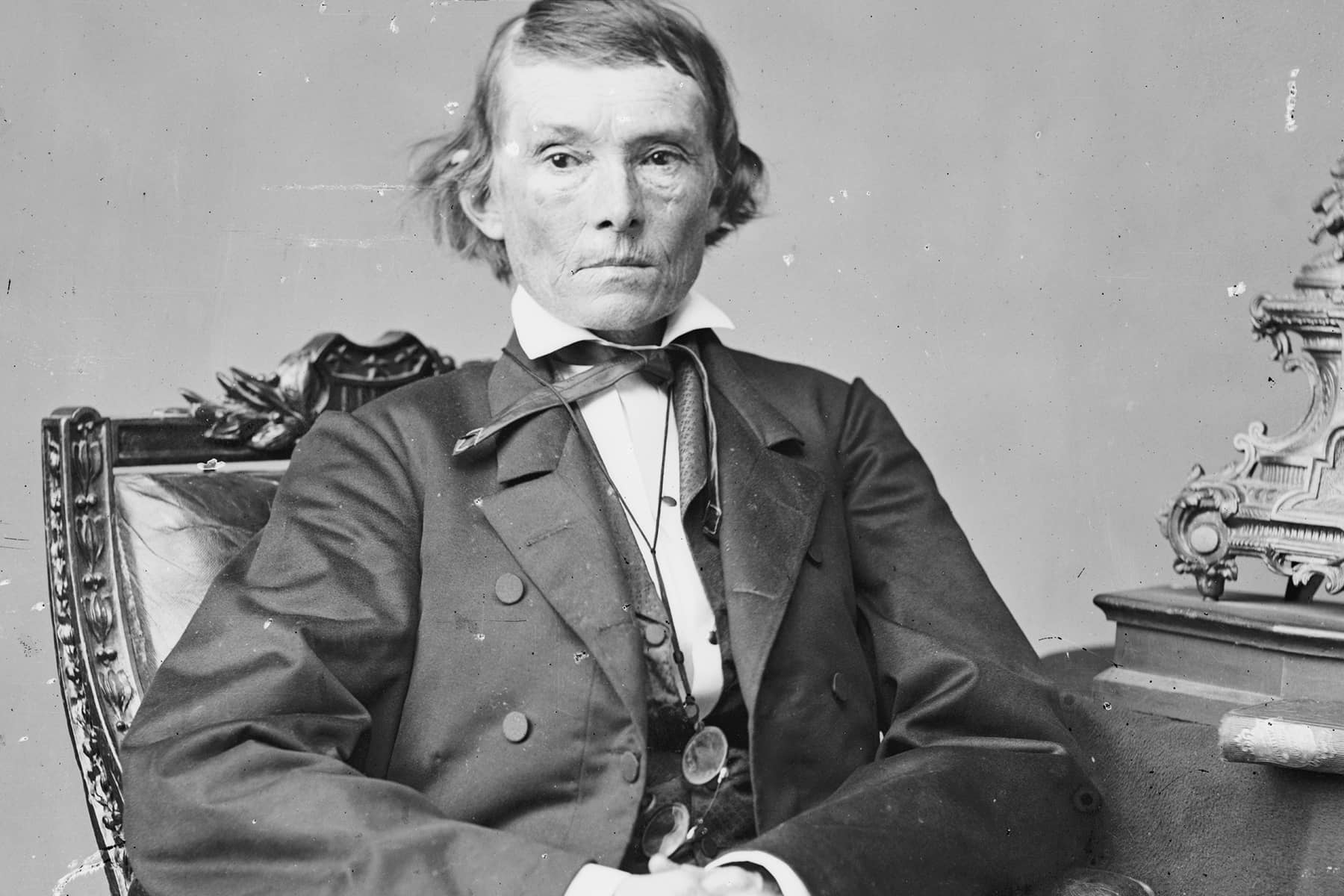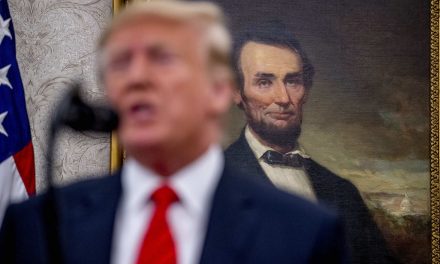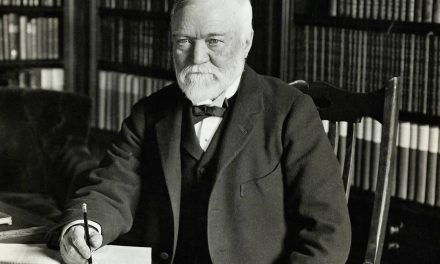
March 21 was the anniversary of Georgia Senator Alexander Stephens’s Cornerstone Speech, given in 1861 just after he became the provisional vice president of the Confederacy. All these years later, the themes of that speech are still with us.
Stephens spoke in Savannah, Georgia, to explain the difference between the United States and the fledgling Confederacy. That difference, he said, was slavery. The American Constitution was defective because it based the government on the principle that all men were created equal. Confederate leaders had corrected the Founding Fathers’ error by basing the Confederate government on the idea that some people were better than others.
In contrast to the government the Founding Fathers had created, the Confederacy rested on the “great truth” that “the negro is not equal to the White man; that slavery subordination to the superior race is his natural and normal condition. This, our new government, is the first, in the history of the world, based upon this great physical, philosophical, and moral truth.”
Their determination to promote their new philosophy meant that the southern states insisted on states’ rights. The majority of Americans, speaking through the federal government, insisted on reining enslavement in, restricting it to the southern states where it already existed, while southern enslavers wanted to expand their “peculiar institution” to the nation’s newly acquired western lands. In White southerners’ view, federal oversight was tyranny, and true democracy meant that state legislatures should be able to do as their voters wished.
So long as a majority of voters in the southern states voted for human enslavement, democracy had been served. Those same states, of course, limited voting to a few wealthy White men.
The Republican Party had organized in the mid-1850s to stand against this version of American democracy. Those who joined the new party recognized that if enslavers were able to take control of new western states, they would use their votes in Congress and in the Electoral College to take over the federal government and make slavery national.
The government, Illinois lawyer Abraham Lincoln warned, could not “endure, permanently half slave and half free. I do not expect the Union to be dissolved — I do not expect the house to fall — but I do expect it will cease to be divided,” he told an audience in June 1858. “It will become all one thing or all the other. Either the opponents of slavery, will arrest the further spread of it, and place it where the public mind shall rest in the belief that it is in the course of ultimate extinction; or its advocates will push it forward, till it shall become alike lawful in all the States, old as well as new — North as well as South.”
For his part, Lincoln insisted on basing the nation on the idea that “all men are created equal,” as the Founders stated — however hypocritically — in the Declaration of Independence. I should like to know,” Lincoln said in July 1858, “if taking this old Declaration of Independence, which declares that all men are equal upon principle and making exceptions to it where will it stop…. If that declaration is not the truth, let us get the Statute book, in which we find it and tear it out! Who is so bold as to do it!”
Less than a month after Stephens gave the Cornerstone Speech, the Confederates fired on a federal fort in Charleston Harbor, and the Civil War began. When it ended, almost exactly four years later, southern state legislatures again tried to circumscribe the lives of the Black Americans who lived within their state lines. The 1865 Black Codes said that Black people couldn’t own firearms, for example, or congregate. They had to treat their White neighbors with deference and were required to sign yearlong work contracts every January or be judged vagrants, punishable by arrest and imprisonment. White employers could get them out of jail by paying their fines, but then they would have to work off their debt.
To make the principle that all men are created equal and entitled to equality before the law a reality, Congress passed the Fourteenth Amendment to the Constitution and sent it off to the states for ratification. The states added it to the Constitution in 1868. The Fourteenth Amendment guaranteed that “No state shall make or enforce any law which shall abridge the privileges or immunities of citizens of the United States; nor shall any state deprive any person of life, liberty, or property, without due process of law; nor deny to any person within its jurisdiction the equal protection of the laws.”
That’s quite a sentence. It guarantees that no state can discriminate against any of its citizens. And then the amendment goes on to say that “Congress shall have power to enforce, by appropriate legislation, the provisions of this article.”
This is what is at stake today, both in the Senate hearings on the confirmation of the Honorable Ketanji Brown Jackson, and more generally. Is our democratic system served so long as state legislatures can do what they wish without federal interference? Or should the federal government protect equality among all its citizens?
Ideally, of course, states would write fair laws without federal interference, and to create those circumstances after the Civil War, Congress passed the Military Reconstruction Act, permitting Black men to vote, and then passed and sent off to the states for ratification the Fifteenth Amendment to the Constitution, guaranteeing the right to vote to Black men. When the Fifteenth Amendment was added to the Constitution in 1870, the system had been fixed, most American men believed: the right to vote should protect all interests in the states.
Quickly, though, southern states took away the vote of the Black voters they insisted were trying to redistribute wealth from hardworking White taxpayers into public works projects to benefit the states’ poorer inhabitants. With Black voters cut out of the system, state legislatures enacted harshly discriminatory laws, and law enforcement looked the other way when White people violated the rights of Black and Brown citizens.
After World War II, the Supreme Court used the due process and the equal protection clauses of the Fourteenth Amendment to overrule state laws that favored certain citizens over others, and Congress passed the 1965 Voting Rights Act to give Black and Brown Americans a say in the state governments under which they lived.
Now, the Republicans, at this point to a person, are echoing the pre–Civil War Democrats to say that democracy means that states should be able to do what they wish without interference from the federal government. So, for example, Texas — and now other states — should be able to ban abortion regardless of the fact that abortion is a constitutional right. States should be able to stop public school teachers from covering certain “divisive” topics: Senator Marsha Blackburn (R-TN) asked an apparently nonplussed Judge Jackson, “Is it your personal hidden agenda to incorporate Critical Race Theory into our legal system?” And states should be able to restrict the vote, much as southern states did after the passage of the Fifteenth Amendment and as 19 Republican-dominated states have done since the 2020 election.
Members of the new Republican Party in the 1850s recognized that, in that era, the doctrine of states’ rights meant not only the continued enslavement of Black Americans in the South, but also the spread of enslavement across the nation as southern enslavers moved west to create new states that would overawe the free states in Congress and the Electoral College. The spread of their system was exactly what Stephens called for 161 years ago today.
Now, in 2022, as Republican-dominated states lock down into one-party systems, their electoral votes threaten to give them the presidency in 2024 regardless of what a majority of Americans want. At that point, the Fourteenth Amendment’s guarantee of equal protection before the law will be vitally important, if only the Supreme Court will enforce it.
And that is a key reason why, 161 years to the day after enslaver Alexander Stephens gave the Cornerstone Speech, the confirmation hearing of a Black woman, Judge Ketanji Brown Jackson, to the Supreme Court matters.
Spеncеr Grаnt and Library of Congress
Letters from an Аmerican is a daily email newsletter written by Heather Cox Richardson, about the history behind today’s politics















